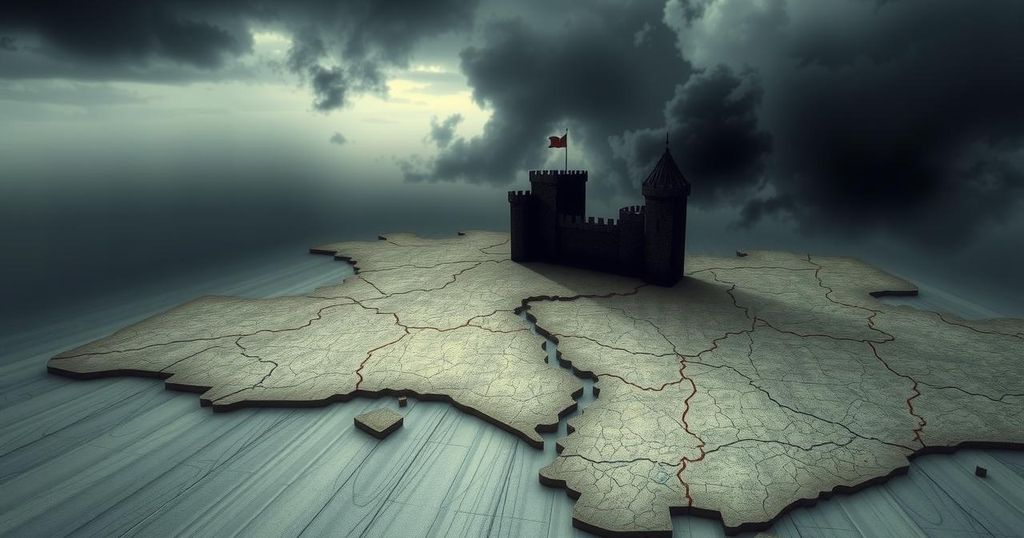World news
ALEXANDER LUKASHENKO, ASIA, BELARUS, EUROPE, EUROPE/ASIA, INTERNATIONAL RELATIONS, IVAN KUBRAKOV, KALINOUSKI REGIMENT, KASTUS KALINOUSKI REGIMENT, LUKASHENKO, MILITARY, MILITARY SUPPORT, MINSK, PEACE NEGOTIATIONS, RUSSIA, RUSSIA-UKRAINE WAR, SBU, SECURITY SERVICE OF UKRAINE, STV, UKRAINE, VA, VASIL VERAMEICHYK, VIETNAM, WAR
Amira Khan
0 Comments
Belarusian Volunteers in Ukraine: Lukashenko’s Fear of Uprising
This article discusses Alexander Lukashenko’s crackdown on Belarusian volunteers fighting in Ukraine, viewing them as a grave threat to his authority. The extradition of Vasil Verameichyk highlights the regime’s oppressive measures against dissenters. The article examines Lukashenko’s fear of organized resistance, his increasing dependence on Russia, and potential diplomatic overtures to the West amid ongoing repression.
Alexander Lukashenko, the dictatorial leader of Belarus, perceives the presence of Belarusian volunteers fighting in Ukraine as a significant threat to his authority. He has labeled them as terrorists and relentlessly pursues them. A recent case involving Vasil Verameichyk, a Belarusian soldier extradited from Vietnam, illustrates the regime’s commitment to repress dissent and punish those who challenge its rule.
Verameichyk served with the Kastus Kalinouski Regiment, a unit of Belarusian volunteers allied with Ukrainian forces. After being abducted in Vietnam in November 2024, he was returned to Belarus, where he was coerced into making a false confession on state television, denouncing supposed plans of invasion supported by Ukraine’s Security Service (SBU) and Western powers.
In statements from Sviatlana Tsikhanouskaya, Belarus’s leading opposition figure, the extradition exemplifies the oppressive nature of Lukashenko’s regime, which actively pursues opponents beyond its borders. The regime’s focus on believers in armed resistance underscores its fear of a potential uprising led by battle-hardened veterans.
The regime identifies Belarusian fighters as living symbols of resistance to Russian control. Their experience and connections abroad pose a threat that could inspire similar movements against Lukashenko’s tyrannical rule, akin to past events in Ukraine. The Belarusian Minister of Internal Affairs has stated that around 160 Belarusians are participating in combat in Ukraine, indicating a systematic attempt to target and prosecute them.
Pavel Slunkin of the European Council on Foreign Relations has highlighted the vulnerability of these volunteers, who lack legal protections. He warned that without international support, Belarusian and Russian security forces may aggressively pursue these individuals, raising concerns for their safety.
Lukashenko has demonstrated increasing paranoia regarding organized resistance, learning from previous uprisings such as that of Prigozhin in Russia. His regime’s crackdown on Verameichyk serves as a cautionary tale for potential volunteers and those within the democratic opposition, fostering a climate of fear.
As Belarus becomes more entrenched in Russia’s military ambitions, Lukashenko’s dependency grows, with reports suggesting the final stage of Russia’s annexation of Belarus is approaching. This situation could enhance Russia’s strategic capabilities against NATO and other Western nations.
Simultaneously, Lukashenko appears to be searching for diplomatic relations with the West. A recent meeting between U.S. officials and Belarusian leadership may indicate negotiations regarding sanctions relief and political prisoner releases, hinting at Lukashenko’s desire to recalibrate foreign relations despite ongoing repression.
Despite these diplomatic overtures, Lukashenko’s severe actions against exiled fighters reveal his intent to eliminate threats to his regime and his loyalty to Russia. These volunteers embody the resistance that could ultimately challenge his administration.
Observers speculate about the dynamics negotiating the potential return of Ukrainian troops into Belarus, suggesting a secretive agreement with Ukrainian President Zelensky might prevent such actions in exchange for limiting missile deployments from Belarus.
The article elucidates Alexander Lukashenko’s fear of insurrection among Belarusian volunteers fighting alongside Ukraine, viewing them as a direct threat to his dictatorship. The case of Vasil Verameichyk exemplifies the regime’s oppressive tactics against dissenting voices, alongside its broader geopolitical shifts towards Russia while seeking openings with the West. The growing influence of these volunteers poses a potential for future resistance against Lukashenko’s regime, emphasizing the delicate balance of power in the region.
Original Source: www.kyivpost.com




Post Comment